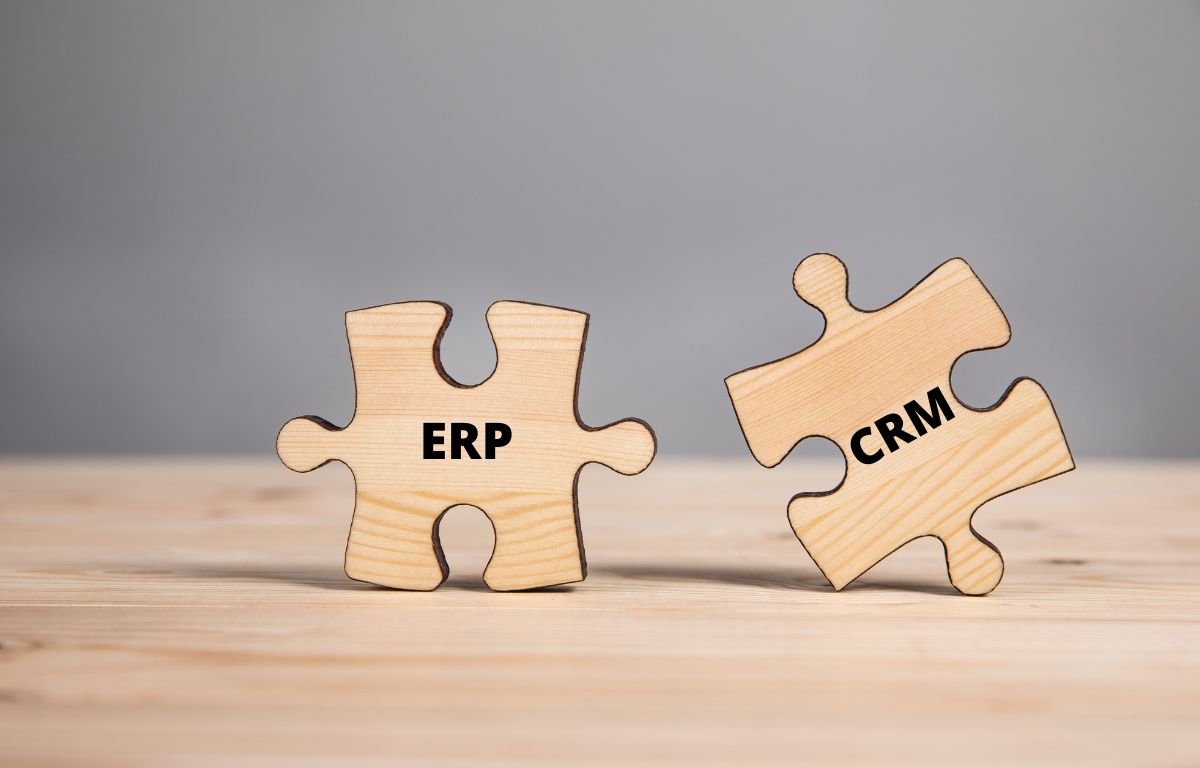The Enterprise resource planning (ERP) is a set of software which looks after financial data by financial department whereas Customer relation management (CRM) software looks after sales data by sales department. So, ERP software manages back office data and CRM manages front office data. It's worth noting that some ERP systems may have CRM features or modules, and some CRM systems may have limited ERP functionalities. However, their primary focuses and core functionalities differ, as outlined above. Organizations may choose to implement one or both systems depending on their specific needs and priorities.
1. Purpose
- ERP: ERP systems are designed to manage and integrate various business processes and functions across different departments, such as finance, human resources, inventory management, procurement, manufacturing, and more. It focuses on optimizing internal operations, streamlining workflows, and improving overall efficiency.
- CRM: CRM systems, on the other hand, primarily focus on managing customer interactions, relationships, and data. They are designed to enhance customer satisfaction, facilitate sales and marketing efforts, and improve customer service and support.
2. Functionality:
- ERP: ERP systems encompass a broad range of functionalities that cover different aspects of the organization, including finance and accounting, supply chain management, production planning, inventory control, human resources, and more. It provides a centralized database and integrates data from various departments, enabling seamless information flow and process automation.
- CRM: CRM systems, on the other hand, primarily focus on managing customer interactions, relationships, and data. They are designed to enhance customer satisfaction, facilitate sales and marketing efforts, and improve customer service and support.
3. Purpose
- ERP: ERP systems are designed to manage and integrate various business processes and functions across different departments, such as finance, human resources, inventory management, procurement, manufacturing, and more. It focuses on optimizing internal operations, streamlining workflows, and improving overall efficiency.
- CRM: CRM systems typically focus on customer-centric functionalities, such as managing customer data, tracking customer interactions, lead management, sales pipeline management, marketing automation, customer service, and analytics. The primary goal is to enhance customer relationships and drive sales and marketing effectiveness.
3. Data Focus:
- ERP: ERP systems primarily handle internal data related to the organization's resources, processes, and transactions. It consolidates data from different departments and provides a holistic view of the organization's operations.
- CRM: CRM systems, on the other hand, primarily focus on managing customer interactions, relationships, and data. They are designed to enhance customer satisfaction, facilitate sales and marketing efforts, and improve customer service and support.
- CRM: CRM systems concentrate on external data related to customers, prospects, leads, and sales activities. They collect and organize customer information, such as contact details, purchase history, preferences, and communication history.
4. Scope
- ERP: ERP systems have a broader scope and are typically used by organizations of all sizes and industries. They address the needs of various departments and functions across the entire organization.
- CRM: CRM systems have a narrower focus specifically on managing customer relationships and are primarily used by sales, marketing, and customer service departments. They are more customer-centric and cater to organizations that heavily rely on customer interactions.
4. Integration
- ERP: ERP systems often have modules or capabilities that include CRM functionality as part of their offering. This allows for integration between CRM and other business functions, enabling a more comprehensive view of customer interactions and their impact on different areas of the organization.
- CRM: While CRM systems can operate independently, they can also integrate with other business systems, such as ERP, to share data and facilitate better cross-functional collaboration.

